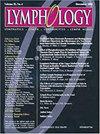A historical account of the role of exercise in the prevention and treatment of cancer-related lymphedema.
IF 0.7
4区 医学
Q4 IMMUNOLOGY
引用次数: 4
Abstract
In the absence of guidance from scientific evidence, a range of lymphedema prevention and management, guidelines were developed by relevant organizations around the world. These became publicly available, promoted and endorsed, particularly to women with breast cancer. The recommendations advised avoidance of any activity that could overload or restrict the lymphatic system and need for caution when participating in specific physical activities. However, over the past 20 years evidence has accumulated which has significantly challenged the safety of these recommendations, in particular for those with cancer. There now exists consistent and compelling evidence in support of exercise following a diagnosis of cancer. Participating in exercise during and following cancer treatment improves function and quality of life, reduces treatment-related morbidity, and may improve survival. Further, exercise, including resistance exercise at moderate or high load, is considered safe for those at risk- or with lymphedema. That is, exercise has not been shown to cause or worsen cancer-related lymphedema. This article provides a historical account of the advice given to patients in the prevention and management of lymphedema and how this advice has evolved.运动在预防和治疗癌症相关淋巴水肿中的作用的历史记录。
在缺乏科学证据指导的情况下,世界各地的相关组织制定了一系列淋巴水肿预防和管理指南。这些都是公开提供、推广和认可的,特别是对患有癌症的妇女。该建议建议避免任何可能使淋巴系统过载或受到限制的活动,并且在参加特定的体育活动时需要谨慎。然而,在过去20年中,积累的证据对这些建议的安全性提出了重大挑战,尤其是对癌症患者。在诊断为癌症后,现在有一致和令人信服的证据支持运动。在癌症治疗期间和之后参加锻炼可以改善功能和生活质量,降低与治疗相关的发病率,并可能提高生存率。此外,运动,包括中等或高负荷的阻力运动,被认为对那些有风险或有淋巴水肿的人是安全的。也就是说,运动尚未被证明会导致或加重癌症相关的淋巴水肿。这篇文章提供了一个关于在预防和管理淋巴水肿方面给患者的建议的历史记录,以及这种建议是如何演变的。
本文章由计算机程序翻译,如有差异,请以英文原文为准。
求助全文
约1分钟内获得全文
求助全文
来源期刊

Lymphology
医学-免疫学
CiteScore
5.20
自引率
8.00%
发文量
29
审稿时长
3 months
期刊介绍:
The Journal contains original articles, special features (see below), and information regarding the International Society of Lymphology. It seeks original papers dealing with clinical and basic studies of the lymphatic system and its disorders including related fields. Articles are accepted for external review and publication on the condition that they are contributed to Lymphology only and that no substantial part has been or will be published elsewhere.
 求助内容:
求助内容: 应助结果提醒方式:
应助结果提醒方式:


